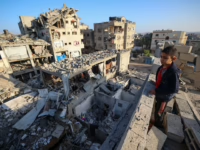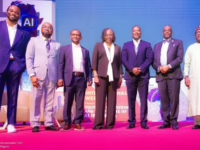
Gloria Musa, a 38-year-old petty trader from Bauchi, has publicly accused her husband of labeling her a witch and forcibly expelling her from their home after he alleged she used sorcery to steal ₦10,000 that had gone missing.
Musa recounted that the conflict began when her husband blamed her for the disappearance of the money and accused her of bringing misfortune upon him.
During a roundtable organized by the Advocacy for Alleged Witches (AFAW) in collaboration with the International Federation of Women Lawyers (FIDA) in Tafawa Balewa Local Government Area, Musa shared her painful experience: “He claimed I used witchcraft to take the money. Before I realized it, his family members joined him and drove me out.”
She continues to face social stigma in her community as a result of the accusation.
“My husband has refused to reconcile with me,” Musa said softly. “Even neighbors whisper about me whenever I walk by – all because of ₦10,000.”
The roundtable’s focus was on “Witchcraft accusations and human rights violations against women and children in Bauchi.”
Dr. Leo Igwe, Director of AFAW, addressed the gathering, condemning the ongoing harassment of women and children rooted in superstition.
He emphasized that witchcraft allegations remain a critical human rights concern in Nigeria, especially in Bauchi, where reports of torture, exile, and even murder linked to such beliefs continue to surface.
“Bauchi is among the states frequently reporting abuses tied to witchcraft accusations and ritualistic violence,” Igwe stated. “The most vulnerable victims are often impoverished elderly individuals and defenseless children.”
Despite advances in society and existing legal frameworks, Igwe lamented that these abuses persist, with many victims unable or unwilling to seek justice or hold their accusers accountable.
“Often, those accused accept their fate silently, rarely pursuing legal action,” he explained, calling the situation “a destructive cycle that must end.”
Igwe praised FIDA, the National Human Rights Commission (NHRC), and local law enforcement for prosecuting some perpetrators but stressed that greater efforts are necessary to eradicate the problem.
He urged attendees to amplify advocacy, raise awareness, and engage communities to halt the persecution of alleged witches.
“Don’t wait until you or a loved one is targeted before raising your voice,” he advised. “Anyone can become a victim. Africa must join global efforts to end witch-hunting.”
Igwe dedicated the event to the memory of victims of witchcraft accusations, including Talatu Joshua, Damina Lamba, Hafsat Bala, Sunday Sale, Ezekiel Samaila, and a recently assaulted seven-year-old girl in the state.
Echoing these concerns, Hauwa Ahmad Abubakar, Chairperson of FIDA’s Bauchi branch, identified ignorance and poverty as primary drivers behind witchcraft allegations.
“Our laws do not recognize witchcraft-neither the constitution nor state legislation,” Abubakar stated. “Yet, due to lack of awareness and idleness, people take justice into their own hands.”
She highlighted that most victims are economically disadvantaged and lack family support, making them easy targets. FIDA has recently handled over ten cases involving witchcraft-related abuse.
“Ignorance of the law is no defense. Anyone who harms or kills another person based on witchcraft accusations will face legal consequences,” she warned.
Abubakar also called on religious leaders to more vocally denounce witchcraft accusations, emphasizing that neither Islam nor Christianity condones such practices.






















0 Comments